As part of its work to improve how partners approach disability-inclusive programming, Inclusive Futures has interviewed three of our partners about how they’re putting what they’ve learned into practice.
SDDirect’s role in Inclusive Futures involves running the Disability Inclusion Helpdesk and sharing the research, evidence and learning from our programmes. So far, it has produced 130 products in at least 24 countries, contributing to growing the global evidence base on disability inclusive development.
Sue Griffiths is the managing director of SDDirect. She is involved in strategic oversight, which involves working with the technical team on how to take up learning across the organisation.
Rebekah Martin is a senior technical specialist and acting strategic lead for the Disability Inclusion Helpdesk.
Maria Vlahakis is acting head of governance and inclusive societies.
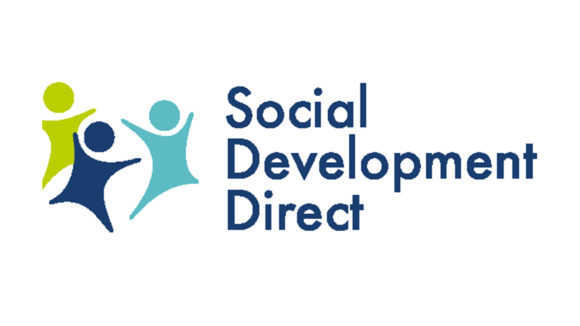
SDDirect
Social Development Direct runs the Inclusive Futures Disability Inclusion Helpdesk, providing research and advice to the UK Foreign, Commonwealth and Development Office (FCDO) and other UK government departments.
About SDDirect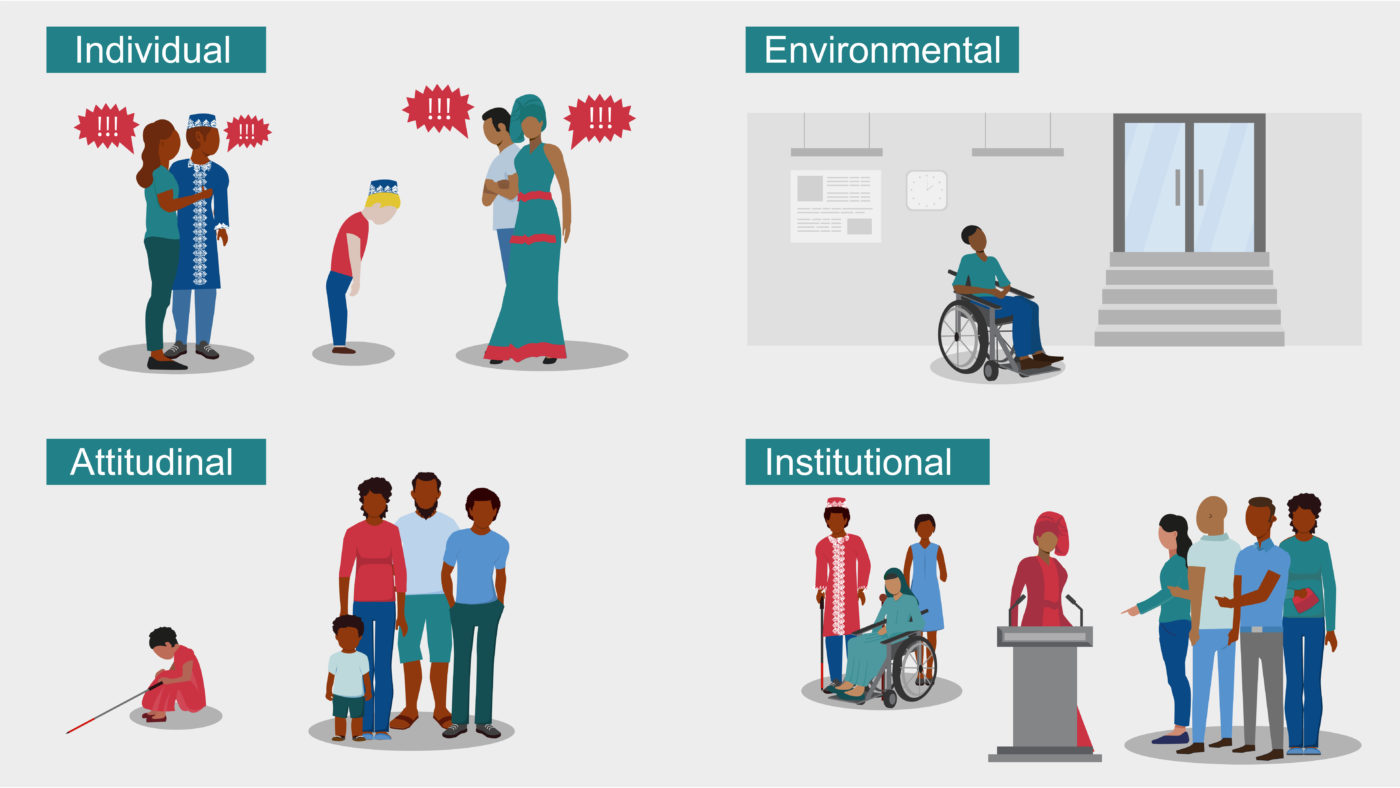
SDDirect is not traditionally known for being a disability-focused organisation. How would you describe the impact being part of Inclusive Futures has had on your work?
Sue: SDDirect works in the broad area of gender equality and social inclusion, so it wasn’t that we didn’t do anything on disabilities before. But being part of Inclusive Futures has had a really catalytic effect on stepping that up. It was a real paradigm shift for the organisation.
How has SDDirect embedded disability inclusion in its work over the past four years?
Rebekah: In the first three years of Inclusive Futures, the Disability Inclusion Helpdesk has produced more than 130 products related to disability inclusion in at least 24 countries. We have an opportunity to support a range of government departments and British embassies or high commissions around the world to promote greater disability inclusion in their policy and programming work, as well within their organisational cultures and workplaces.
We’ve become more accustomed to engaging with OPDs and people with disabilities as expert contributors for our reports and for our training sessions, and with guest bloggers for our evidence digests.
We’ve produced products through the helpdesk on topics that are relevant to our wider work, including gender-based violence, economic empowerment or infrastructure, which we can share with colleagues and learn from. Colleagues from different teams have been able to work on helpdesk queries and engage with experts in their specialist areas. This has given them dedicated time to conduct research and go through that learning process. So that’s been a good vehicle for extending learning on disability inclusion out through our monitoring and evaluation practices or different technical areas.
We’ve also been able to make the ways in which we present our work more accessible for people with disabilities. So for instance, we’ve produced easy read versions of our knowledge products and evidence digests and have worked with our partner, Sightsavers, to make sure that we have accessible templates for our reports, briefs and presentations.
Helpdesk library
To learn more about inclusion, download reports and evidence digests from the Disability Inclusion Helpdesk.
Visit the libraryA key part of Inclusive Futures is working in a consortium. What has SDDirect learned from other partners who have more experience of working on disability inclusion?
Rebekah: Inclusive Futures gave us the opportunity to learn from consortium partners, from disability inclusion experts, from representatives of organisations of people with disabilities. It has also given us an opportunity to research different topics related to disability inclusion, and share learning back with our other portfolios.
Sue: Inclusive Futures is founded on the principle of mutual learning. So it’s been fantastic to not only realise the value of the project that you are doing, but also the greater value to the organisations involved.
Maria: Increasing our partnerships with organisations that have disability inclusion specialisms or expertise was and continues to be important to us. For example, if you look at an issue like gender-based violence (GBV), you often find the violence against women and girls sector might not have a lot of disability inclusion expertise and sometimes disability rights organisations might not have a lot of GBV expertise. Through our work we can bring different movements together to help collectively build knowledge and skills.
Inclusive Futures also works in partnership with organisations of people with disabilities (OPDs). What has SDDirect learned from working with OPDs?
Rebekah: We produced a knowledge product on the impact of COVID-19 on OPDs. This really helped us in our thinking about how as a helpdesk, and as an organisation more broadly, we could engage with OPDs more meaningfully as experts and equal partners. Our focus now is on trying to make sure that engagement with OPDs and other rights organisations is meaningful so that our research isn’t extractive or tokenistic, and that we are valuing and rewarding OPDs’ time in a way that works for them.
Maria: For example, if we do involve an OPD in an interview, we ensure they’re given enough time to prepare for that interview, that they’re given compensation as well, and then also that we give them feedback afterwards about what we’ve done with what they’ve told us, even if it’s just sharing the final product with them.
“Our focus now is on trying to make sure that engagement with OPDs and other rights organisations is meaningful.”
How will SDDirect implement disability inclusive practices in its programmes beyond Inclusive Futures programming?
Rebekah: Our intersectional approach is one of our key strengths as an organisation. There is a lot demand for us to support gender equality, disability and social inclusion analyses, creating action plans and doing research into issues relating to the ‘leave no one behind’ objectives. We’re making sure that we take a more participatory and consultative approach with groups that are marginalised, including people with impairments who are often excluded from mainstream conversations.
How is SDDirect making changes to its internal policies and practices?
Sue: As part of our organisational strategy, we try to bring our expertise to programmes we work on, but we also take what we learn from working on those programmes and apply them to our own systems, processes and cultures. There was a real feeling once we started to work on Inclusive Futures that if we were going to talk the talk, we had to walk the walk and that we really needed to step up what we were doing internally.
Maria: Staff who worked on the Inclusive Futures helpdesk originally came up with the idea to set up a Disability Working Group in 2019. It has since broadened to include a broad spectrum of staff from different teams. It’s a vehicle for all staff, but specifically for staff who have disabilities, to make their views known where they may not feel comfortable coming directly to a manager.
One of the first things the Disability Working Group did was to carry out a disability inclusion audit. It focused on organisational culture, policies, processes, looking at whether SDDirect was an accessible organisation and our compliance with the Convention on the Rights of Persons with Disabilities (CRPD). We collected evidence on where our strengths were and where the gaps were. The recommendations in that resulting report have driven a lot of what we’ve done over the last four years.
Sue: The Disability Working Group helped us to prioritise actions that we could get started on straight away. For example, we signed up to the Disability Confident Employers scheme – a lot has been done to make sure that candidates can access our recruitment processes and there’s no discrimination or disadvantage. We’ve had positive feedback from candidates, both with and without disabilities, that it makes for a more approachable recruitment process.
Maria: We used to offer staff training on disability inclusion, which was initially delivered by external experts from the helpdesk, such as Lorraine Wapling. We’re now at the stage where we feel confident to deliver training with little or no engagement from our external experts. Our colleague Rebekah is leading the rollout of five training sessions at the moment looking at disability-inclusive programming, data and monitoring, partnerships and accessibility – including producing braille versions of reports, making sure that transcripts include closed captioning and that sign language glossaries are available as well.
In the audit, there were findings in relation to the office being accessible for people with mobility impairments, but that we needed to look at accessibility more broadly. For example, it’s very open plan – there are not very many meeting rooms so that doesn’t work well for some people.
Sue: We are serving some things better than others because we’ve worked out how to do it, and in others we don’t quite know where to go or what the solution would be. It’s about consistency and being able to take feedback where there is an issue and find out where to go for support. The Inclusive Futures Helpdesk has massively expanded our understanding of where the evidence on disability inclusion comes from and where we need to go to get it.
“We’re making sure that we take a more participatory and consultative approach with groups that are marginalised.”
What are the next steps in SDDirect’s disability inclusion journey?
Sue: We’re at an interesting point in our journey and actively reflecting on where we are now and where we need to go to next. We would like to move towards a position where we are more proactively removing barriers before someone asks for us to remove them.
There are some things where we know we would like to do more. For example, we’ve done quite a lot on recruitment processes. But are we really reaching candidates and pools of candidates that are as diverse as we would like them to be?
We’re thinking about mental health support, and practical things like equipment for the office – what we need to put in place to support our employees with disabilities at work. And we’re obviously very keen to continue collaborating with organisations who have really in-depth expertise on this.
We’ve just started a new programme this month with Sightsavers, another partner in the consortium, so our work on disability inclusion is continuing to build.
Do you know how to put disability inclusion into practice?
Take the Big Inclusion QuizMore news and opinions
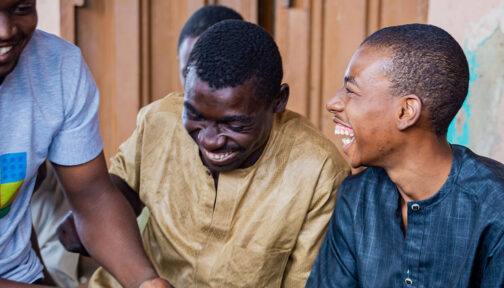
Global Disability Summit 2025: Closing the gap between disability inclusion and development
Inclusive Futures is attending the summit in Berlin on 2-3 April. Visit our booth or attend our panel event to connect with us and learn more about our programme insights.
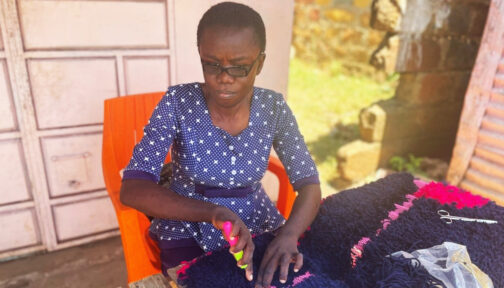
Sense International wins prestigious Zero Project award for its work with entrepreneurs with disabilities
Sense International has won a 2025 Zero Project Award for empowering individuals with deafblindness and complex disabilities in Kenya to build successful businesses and achieve financial independence.
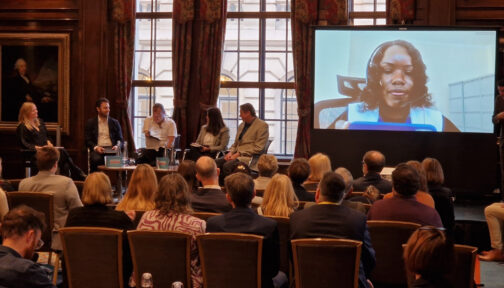
Driving change: launching the six principles for inclusive development
Inclusive Futures and the UK Foreign, Commonwealth & Development Office marked International Day of People with Disabilities by jointly hosting an event to launch the six principles for inclusive development.
Sign up to Inclusive Futures emails today
Sign up to Inclusive Futures emails today
Want to hear more from Inclusive Futures? Sign up to receive the latest research from our programmes and resources to help make your work inclusive of people with disabilities.
For more information see our privacy policy